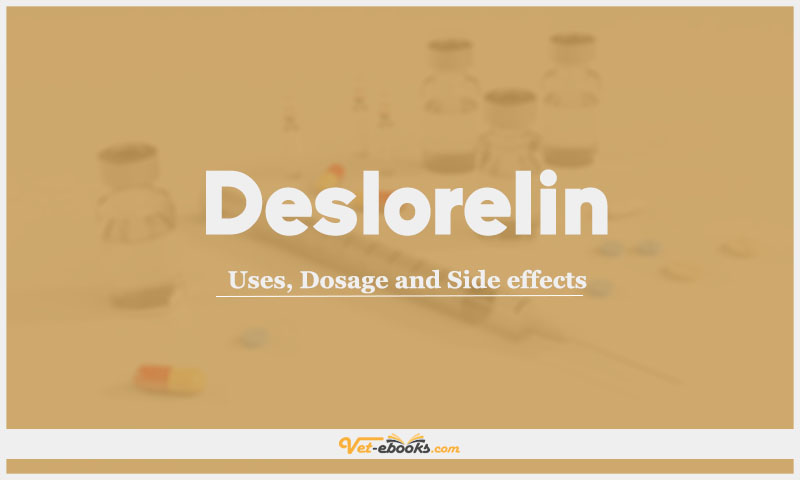Deslorelin: Uses, Dosage and Side Effects

Overview
- Superagonist of GnRH.
- Receptors are stimulated for the first two weeks after application, but then die down due to overstimulation, resulting in decreased LH and FSH production.
- As a result, cessation of testosterone and sperm formation
Uses of Deslorelin
Temporary chemical castration.
Dose of Deslorelin in Dogs and Cats
Dogs:
1 implant per male dog repeats after 6 or 12 months (depending on the size of implant).
Cats:
1 implant (4.7 mg) per male cat.
Side Effects of Deslorelin in Dogs and Cats
- Moderate swelling at the implant site.
- A significant decrease in testicle size will be seen during treatment.
Contraindications of Deslorelin in Dogs and Cats
- Use in bitches causes induction of oestrus within a few days, followed by a long anoestrus period
Some Notes:
- Infertility lasts 6–12 months.
- Treated dogs should stay away from bitches in the heat for 6 weeks after initial treatment (separation unnecessary after future implantations if the product is administered every 6 or 12 months).
- Matings during therapy rarely result in pregnancy.
- Dogs under 10 kg may take 18 months to regain testosterone.
- Deslorelin devices chemically castrate tom cats for 2–4 years.
- Pre-implant site disinfection prevents infection.
- Subcutaneously insert the product between the lower neck and lumbar area.
- In low-vascularized areas, the fat injection may impede active substance release.
- If therapy is discontinued, biocompatible implants can be removed under local anesthesia.
Tip
Do You Want To Increase Your Veterinary Knowledge and Practical Skills?
You Can Now Browse and Download +3000 Books For Veterinary Professionals & Students Online.
Download Veterinary Books












